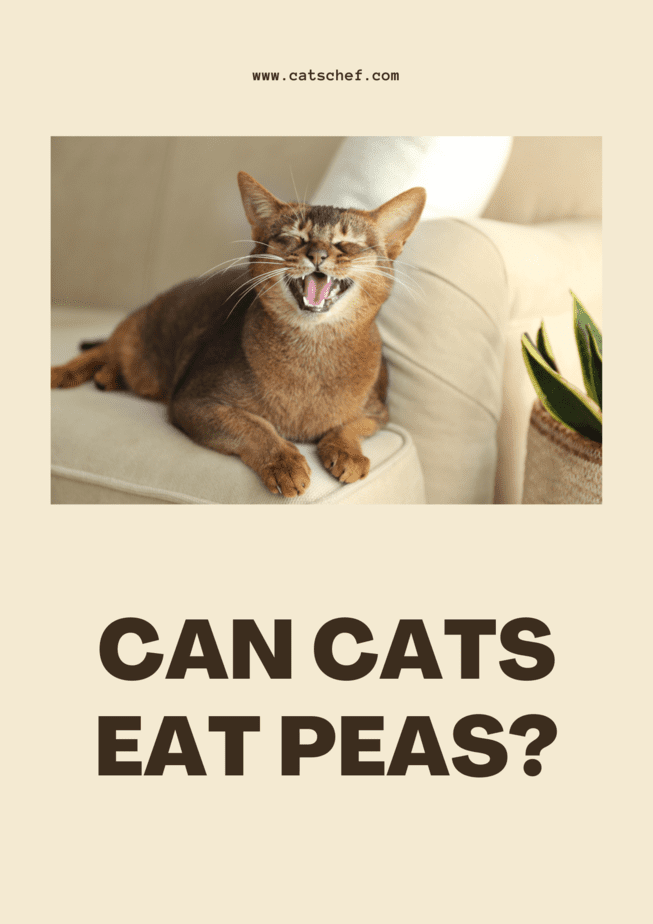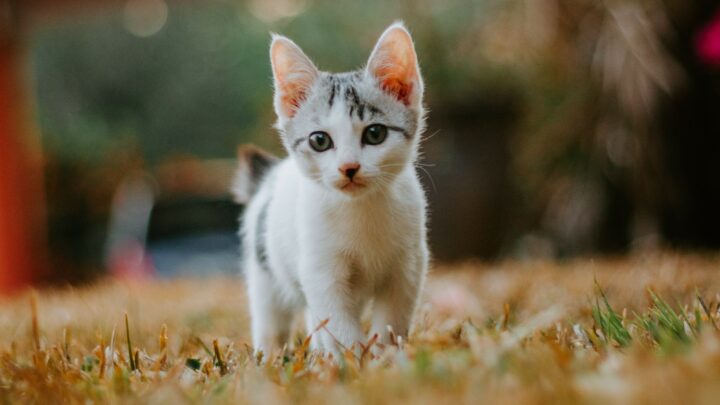Can cats eat peas or is that vegetable reserved only for human beings? We’ll figure it out together.
This cold-season veggie is growing like crazy in your backyard and your little feline keeps playing around with it. Do you think she ate some parts? She’s definitely enjoying that crunchy pea pod and there’s nothing you can do about it.
If nothing seems to be wrong with your furbaby, keep checking up on her from time to time (especially if it’s the first time she’s eating it) and continue reading to find out if it’s safe for your feline to eat peas.
We both know that cats usually are not a big fan of fruits and veggies and you probably can’t turn them into vegans (I say probably because I still haven’t googled if someone actually tried). They are obligate carnivores which means that meat is their primary source of nutrition.
However, their curiosity will take them places and therefore they’ll definitely want to steal something off your plate, especially if they see you’re enjoying it.
It’s absolutely true, you can serve them some human food in moderate amounts. There are probably certain foods that you’d never even think of sharing with her, but somebody did. But what about this green veggie though? Is there going to be a problem if your cat ate a piece of it?
Without further ado, let’s solve the dilemma, can cats eat peas or this veggie is a no-go.
Can cats eat peas safely?
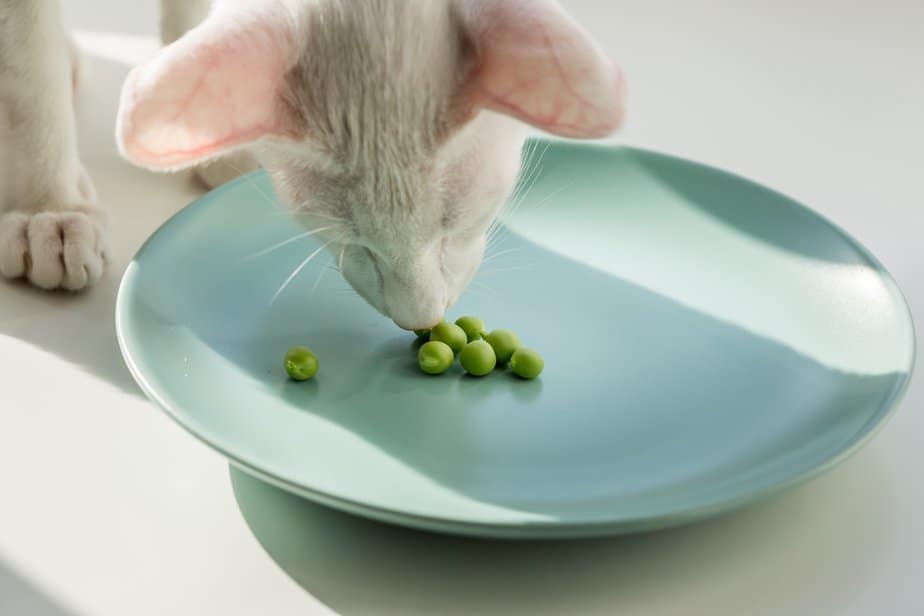
Of course! This is one of those veggies that has a lot of nutrition and can be a valuable asset to our feline’s diet. It may be strange for her at the beginning, especially if you serve her only those round seeds.
But I guarantee you, she’ll enjoy munching on peas, either frozen, raw or cooked. There are three different types of peas and all of them are safe for your cat. We’ll explain in a detail a bit later, but that’s all that you need to know right now.
You can get creative and serve her something colorful. Mix peas, carrots, and cauliflower for example, and give her one healthy veggie salad. I’m sure she’ll enjoy it.
There may be some negative effects if you serve human food to your kitty, but moderate amounts served periodically shouldn’t be harmful. However, if you do notice some changes, contact your vet right away.
She may be having an allergic reaction or she consumed a larger dose than suggested, but he’s going to help her no matter what. If it’s too far to go and visit him, he may give you some instructions over the phone as well.
All the pros of peas for your feline
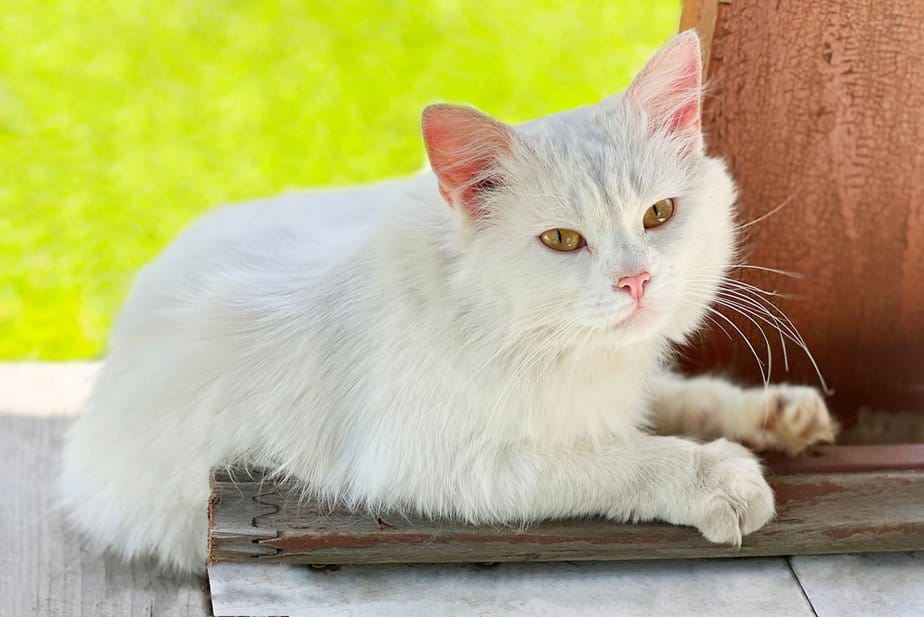
So apparently, your little furbaby munched on peas. Did she eat leaves, just a shell or those little green pearls within? Maybe she took one pea pod from your basket? Whatever it is, don’t worry too much.
Peas are among those vegetables that are highly nutritious both for our felines and us. It’s not going to harm her if she eats a bit from time to time. They are low in calories and they have a lot of vitamins and minerals your cat can benefit from.
Fiber is extremely important for the digestive system. When consumed in moderate amounts, it helps with digestion and constipation. So, in case your feline has some stomach issues, serving her peas may actually help.
Iron is much needed for strengthening our red blood cells and for transferring oxygen from our lungs to every tissue in our bodies. And, you’ve guessed it right, it’s the same for our feline.
Manganese and copper are present and needed in small amounts for all beings in order for our bodies to function normally. Peas also contain these two highly important minerals.
Vitamin C is the one I don’t have to talk about too much. It will help boost her immune system, but consuming it has to be moderate.
Vitamin B1 is an essential nutrient that cannot be made in the human body so that’s why we need to ingest it through our food. Peas have a lot of it. It’s very important for our nervous system and it helps in the normal functioning of our hearts and brains. The same applies to our feline.
Vitamin K is the one responsible for normal blood flow and its clogging, so it’s really important for it to be present in our bodies. It also helps with wound healing, which is why this is one of the most important vitamins your kitty needs.
Potassium is sometimes also referred to as an electrolyte since it carries a little charge that is important for activating and normal functioning of nerves.
All the cons of peas for your feline
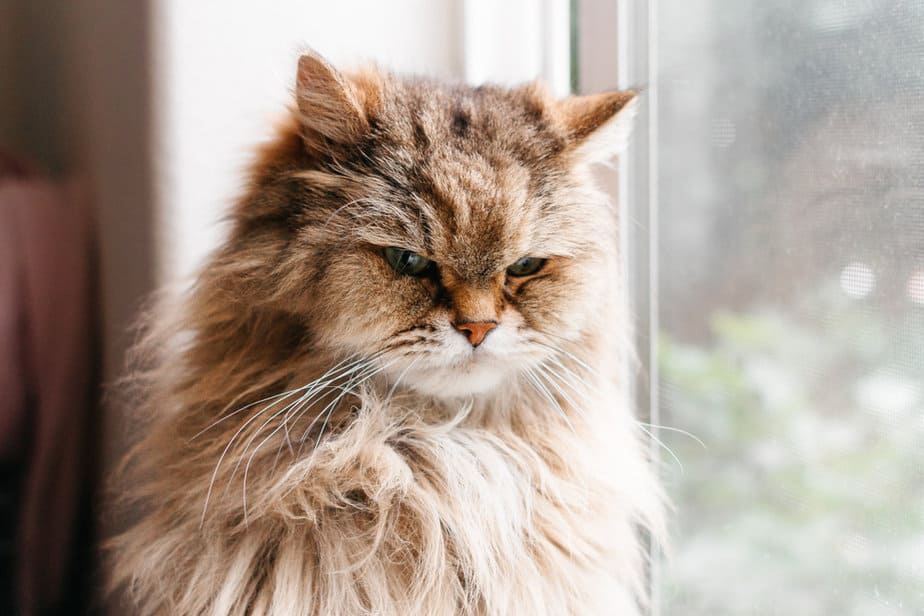
So, even though there are a lot of good things in peas and they are packed with all of these vitamins and minerals, it’s not a great idea to serve only this. Your feline needs meat in her diet and you should never forget that.
Rather serve frozen peas to your furbaby than canned ones, since they may be high in sodium which can be harmful to your cat. Frozen peas can be a great snack for a hot summer day and I’m sure she’ll enjoy the crunch!
Naturally, cats can react negatively to peas. If we’re being honest, it can happen with any kind of human food that we decide to serve to her. She can have an allergic reaction or an upset stomach, so give her smaller amounts.
Peas contain lecithin, a protein that is often used as an insecticide, but it’s not toxic to cats. However, they may face some digestion problems if they consume too much.
If your feline is allergic to peas, look for signs like diarrhea, sleepiness, and vomiting and she may even have some difficulties breathing. I don’t have to emphasize that if you notice any of these, you have to contact your vet ASAP.
Can cats eat green peas?
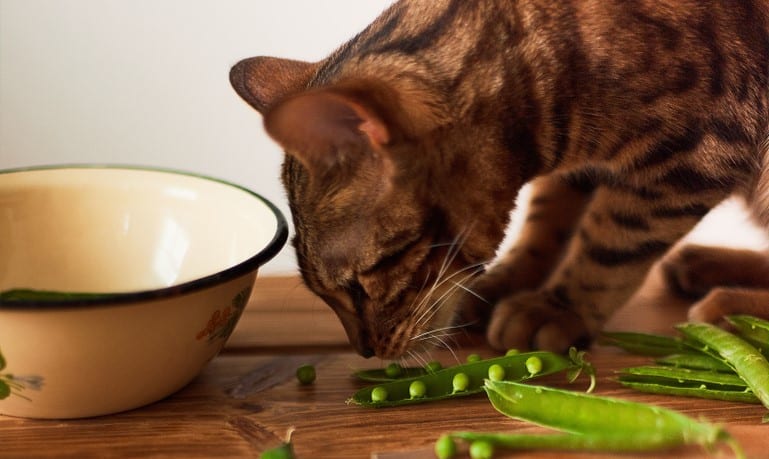
Green peas are actually one of the healthiest veggies you can serve to your feline. These are often called English peas or simply garden peas.
Their shell has to be removed because it’s not easy for us to digest them either and they can be a choking hazard as well. You can serve them cooked, raw, or frozen. Don’t feed it often to your feline though.
They contain a decent amount of carbs and overconsumption may lead to obesity in cats. Also, I assume you enjoy it when your peas have that extra spice in them.
If you decide to prepare this green seed for your lunch, make sure you don’t serve leftovers to your furbaby. Butter, salt, onion, and garlic are a big no for your little buddy and that actually makes peas a delicious meal for us.
If you want, boil them (or steam) in plain water and serve a couple of them with their regular food. You can also make them a mushy paste of peas. They’ll like the texture. It would be best to avoid serving her soup made of these, simply because of seasoning.
Can cats eat snow peas?
Snow peas are something extremely popular in Chinese cuisine. Their name comes from the fact that they are able to survive in extremely cold conditions. They are thin and just a couple of minutes away from being fully cooked.
They are consumed whole and they have little seeds inside the shell. You add some fresh lemon juice and there you go, you have a perfectly refreshing side dish. But can you give one pea pod or two to your feline?
Sure thing! Your kitty will definitely enjoy the crunch of this if you serve it raw. Munching on a shell may cause choking, so you should be careful about that. Also, serving her boiled snow peas (without seasoning) can be a great treat for your feline.
Can cats eat sugar snap peas?
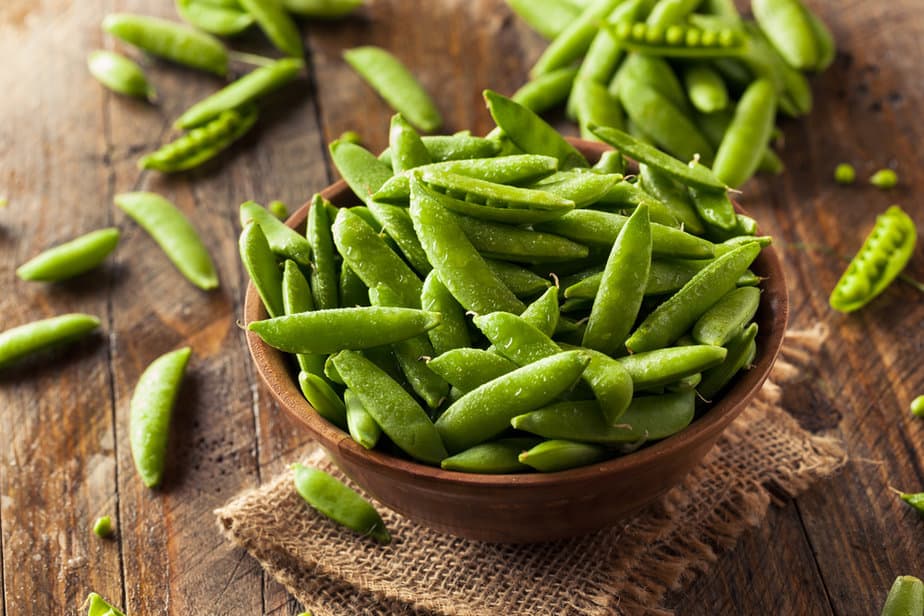
Sugar snap peas get a big yes. This kind of peas is a hybrid (snow peas and English peas) and it has the best of both worlds. They have more rounded seeds and they are a perfect crunch. You can eat them with or without that pea pod, your choice.
They can be prepared in less than 10 minutes and you can always discover new ways to prepare them. They are a perfect spring treat.
And another bonus is that your feline is absolutely going to enjoy this treat. They are crispy, delicious, and healthy. Who would skip something like that? You can serve them as a part of some salad, or just sprinkle it around her bowl with regular cat food.
Whole pea pods cut in pieces, only those perfectly round green seeds, fresh, cooked, frozen – you can choose whatever you like!
What is an everlasting pea plant and is it toxic for cats?
The everlasting pea plant is commonly known as sweet peas and they are toxic to our domestic animals, including cats. Fortunately, this one won’t get your feline’s attention, unless she’s an extremely curious little devil.
If you notice that she’s slowed down a bit, has diarrhea, or is vomiting, and you suspect that she may have consumed sweet peas, contact your vet immediately. In some extreme cases, eating this kind of peas may risk one of their nine lives.
To wrap it up…
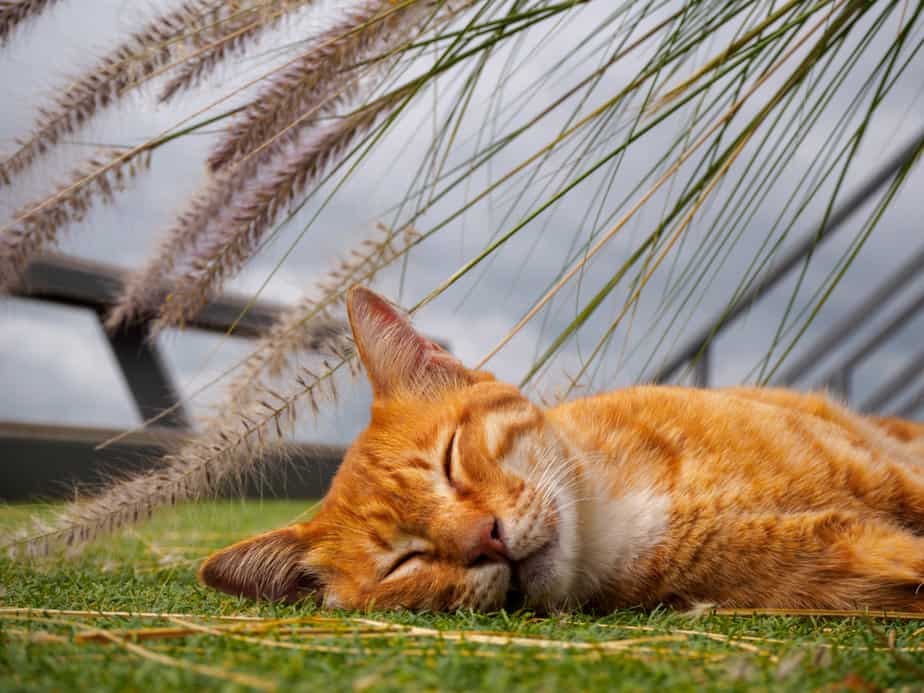
In the end, peas are definitely not a bad choice as a supplement to your feline’s diet. Maybe it would be best to completely avoid the pod because it can be a chinking hazard, but it’s not necessary.
You can serve them frozen, just pay attention that they are not too hard so she won’t hurt her teeth. Raw peas or simply boiled in plain water is something your cat will love!
Even though peas are healthy and they have high nutritive value, they should never be the main course. I mean your little carnivore needs some meat and wet cat food, right?
All three types of peas (green peas, sugar snap peas, and snow peas) are completely safe for your kitty to consume, in moderate amounts. Sweet peas ate the only toxic type of this veggie that can be extremely harmful to your furbaby.
However, in case you notice any sign of poisoning or an allergic reaction, seek medical attention right away. Consulting your vet before you give her human food will actually prevent all those harmful consequences that may happen.
